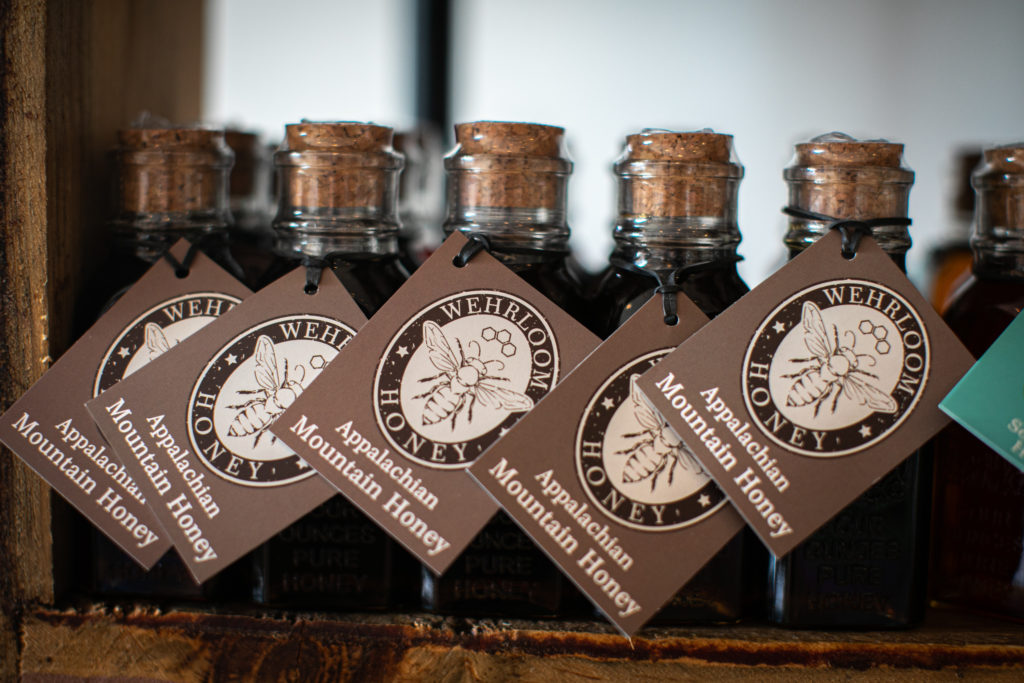Earlier this decade, Aron Wehr realized he could be putting the beehives on his family’s property in Robbinsville—a collection that started as a gift of a couple hives for his wife, Jessica—to work. Little did the Wehrs know that they would create such a buzz.
“I don’t know we started the business thinking it would ever be this big or this popular,” Aron says. “It was just we sort of needed jobs, and in a rural county like Graham, that’s sort of hard to come by.”
They founded their company, Wehrloom Honey, in 2013 and immediately found success selling local honey at farmer’s markets and to tourists. Today, with about 200 hives, millions of bees, and a retail store full of products from honey to skincare products to mead, the Wehrs’ business is thriving.
“Part of it is getting lucky,” Aron says. “It was sort of a logical step forward to get more bees and make more honey because we can sell it.”
Inside the quaint shop, glass jars of amber liquid are arranged neatly on shelves over here. Bars of soap, bottles of lotion, and other skincare products—Jessica’s creations—are set up there.
“We’re not just a honey business,” Aron says. “We wanted to have more on the shelf than honey. We had products that we’d make for ourselves or for our kids and found that people really loved them.”
A few years ago, the Wehrs expanded into mead, the honey-based wine, with catchy names such as Dry County Dry, Pretty in Peach, and Black-“Bear”ry.
The expanded line of products has helped Wehrloom grow; the company now has four full-time employees beyond Aron and Jessica. But despite that growth, the Wehrs are unable to provide affordable health insurance to their workers because of North Carolina’s coverage gap.
“We love our employees, we think they’re great, and I’d do anything for them,” Aron says. “But one thing I can’t do is offer them health insurance. It’s not that I can’t offer it, but it’s not affordable for them. It’s not even in the realm of possibility. There’s no way they could afford the health insurance I can offer them.”
Aron says closing the coverage gap would provide a boost to entrepreneurs across the state. “It would make me far more competitive and make it easier for me to find more people to employ if health care coverage was something I was able to offer.”
The Wehrs hope to continue to grow their business—their pre-teen daughters help run the cash register and bottle honey—but they know the battle for (nonfamily) help is intense in rural counties without the ability to offer affordable health insurance.
“It makes it hard for a small business to compete,” he says. “(People) could go work up the road at the casino and get health care coverage for nothing. But that’s a huge company with thousands of thousands of employees.
“I think it puts me at a huge disadvantage.”



